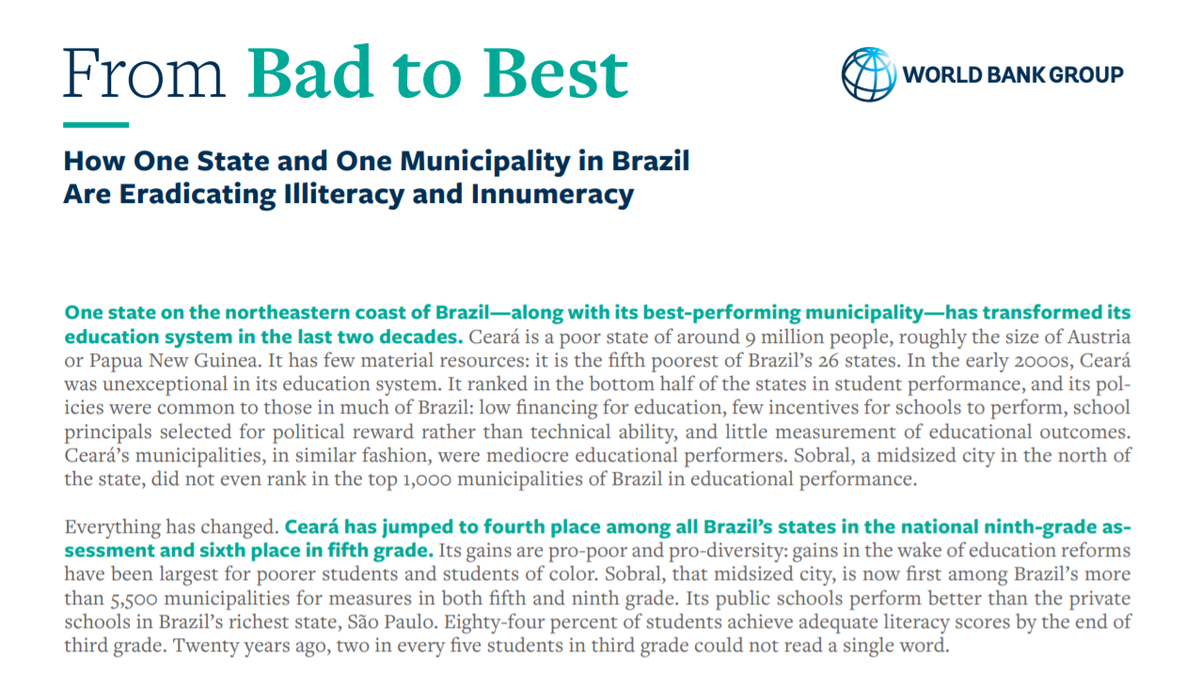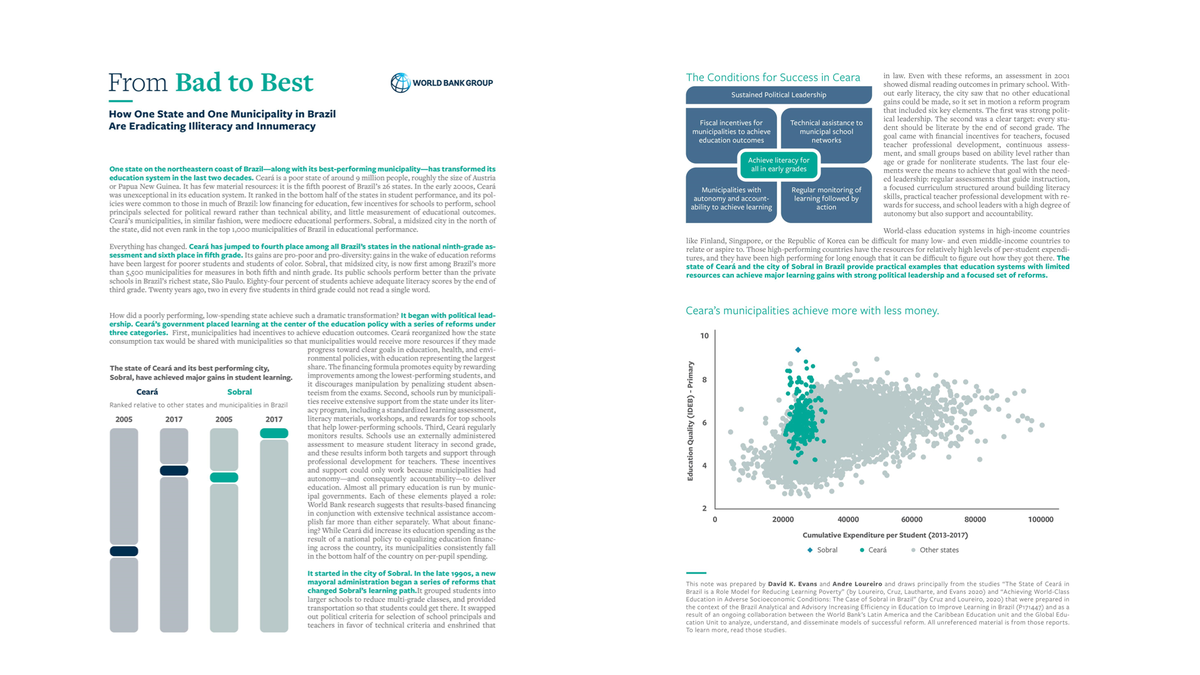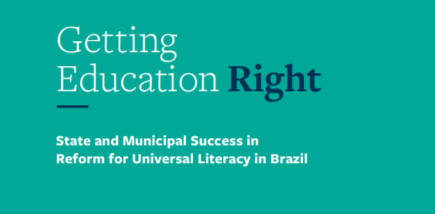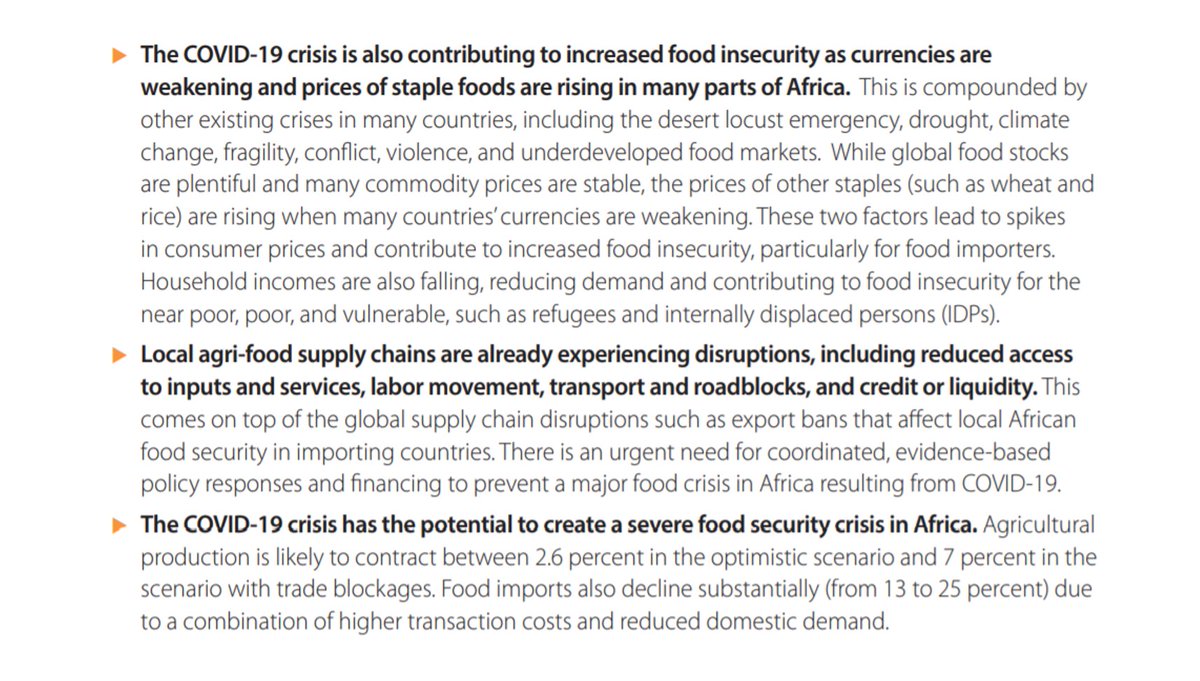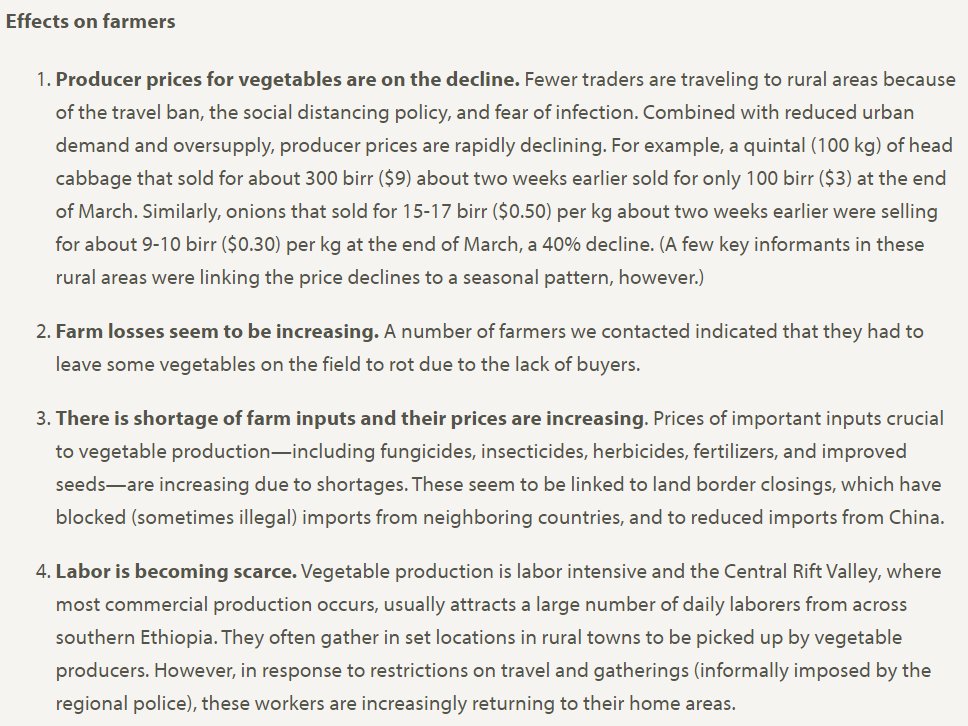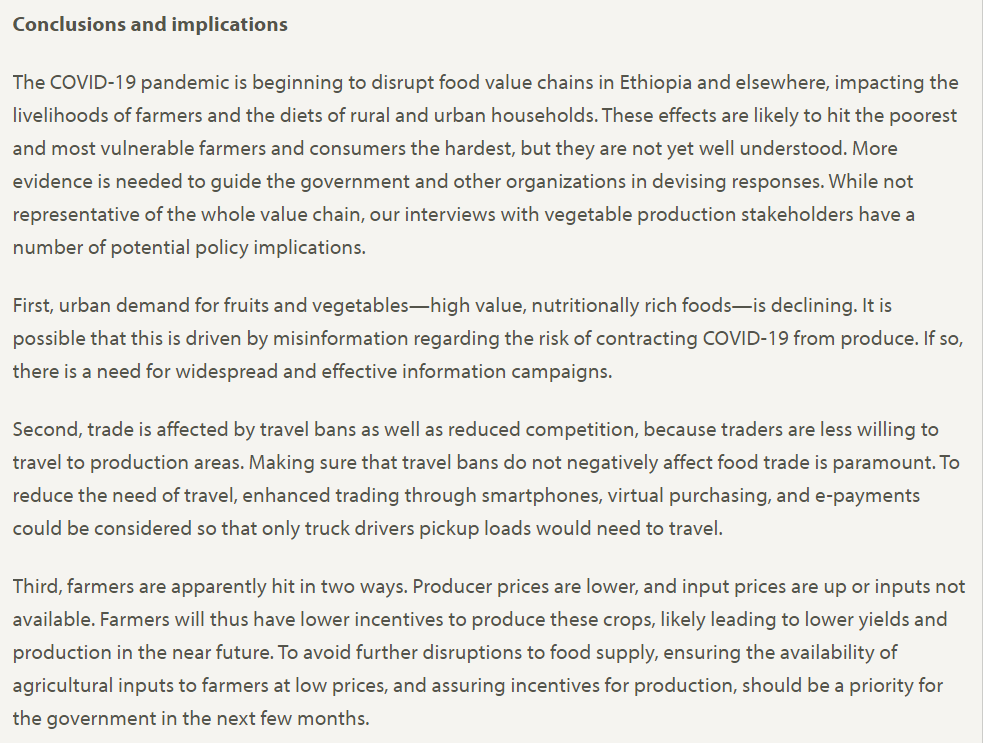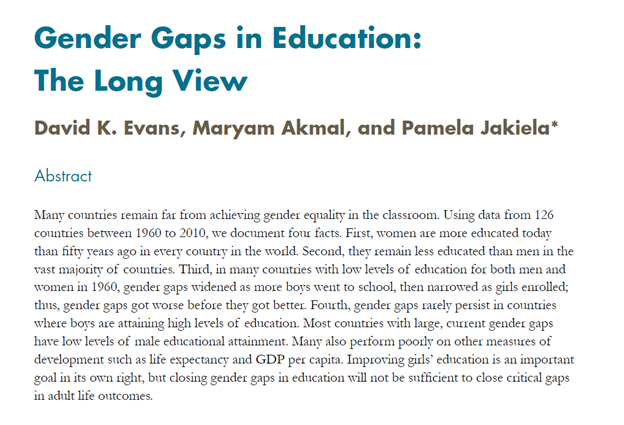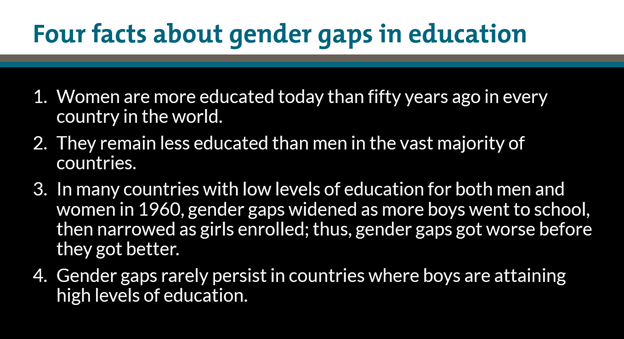
Each year, the World Bank's Development Impact blog publishes a series of posts by job market candidates about their original research. Here's a running thread.
"Digitising microfinance loans to create female enterprise growth" by @EmmaRiley19
https://twitter.com/dmckenzie001/status/1326165762227265538
"Cracking open new markets: A contract helps farmers in Senegal meet export quality standards." by @JoshDeutschmann
https://twitter.com/FKondylis/status/1326508212795936768
"Wasting time vs wasting money: how liquidity and transaction costs shape demand for electricity in rural Rwanda" by Megan Lang (@econ_lang)
https://twitter.com/dmckenzie001/status/1326887299729272834
"Mission or money: How can the public sector motivate employees to perform their job?" by Muhammad Yasir Khan (@yasirmkh)
https://twitter.com/BerkOzler12/status/1327240212804726784
"What can a phonebook app teach us about how rural firms value relational contracting?" by Jess Rudder (@AreBerkeley)
https://twitter.com/dmckenzie001/status/1328322725996339200
How to Help New SMEs Overcome Growth Barriers in E-commerce Markets? by Zhengyun (Patricia) Sun (@zhengyun_sun)
https://twitter.com/dmckenzie001/status/1328698808520347650
Does Low State Capacity Set a Ceiling on Tax Rates? Evidence from Randomized Tax Rate Reductions in the D.R. Congo, by Augustin Bergeron (@AugustinBerge11)
https://twitter.com/markus_gold/status/1329046253800448001
Roads of fire: labor exits, crop-burning and the environmental costs of structural transformation, by Hemant Pullabhotla (@HPullabhotla)
https://twitter.com/FKondylis/status/1329417543715614722
The more the merrier: How larger refugee populations lead to more integration, by Thomas Gautier (@bu_economics)
https://twitter.com/dmckenzie001/status/1329806669795237890
Let the (P)rice Flow: Can Export Activity Benefit Domestic Consumers? Guest post by Utsav Manjeer (utsavmanjeer.com)
https://twitter.com/BerkOzler12/status/1330904540053377027
"Because the Mother-in-Law was Once a Daughter-in-Law: Mothers-in-Law Boost Women’s Labor Force Participation by Sharing Housework Burdens" by Divya Pandey (@Divya_Pandey4 @UVA)
https://twitter.com/markus_gold/status/1331306857810583556
"With great help from my friends: spillovers from college aspirations" by Jessica Gagete-Miranda (@GageteJessica)
https://twitter.com/dmckenzie001/status/1331585072563171330
"Dress to progress: religious veiling facilitates young women to pursue a career" by Naila Shofia
https://twitter.com/dmckenzie001/status/1333431926242357248
"Surprise! When do they work best for auditors?" by Wendy N. Wong (@wendynassrwong)
https://twitter.com/FKondylis/status/1333764833746046976
"Does violent crime exacerbate gender inequalities? Evidence from the Mexican Drug War" by Maria Hernandez-de-Benito (@MariaHdzdB)
blogs.worldbank.org/impactevaluati…
blogs.worldbank.org/impactevaluati…
"What do we know about tax-evading politicians and their effect on public goods provision and economic development?" by Moogdho Mahzab (@moogdho_mahzab)
https://twitter.com/markus_gold/status/1334559217517268995
"Avoiding crime: the effects of homicides near the workplace on labor markets" by Camila Navajas-Ahumada (@CNavajasAhumada)
https://twitter.com/dmckenzie001/status/1334866454806720512
"A Dangerous Path to Opportunity: Risky Irregular Migration in the Mediterranean Sea" by Giacomo Battiston (@giac_bat)
https://twitter.com/dmckenzie001/status/1335938077882191874
"Travel distance or ability match with school, what do parents care about?" by Shanjukta Nath (@ShanjuktaN)
blogs.worldbank.org/impactevaluati…
blogs.worldbank.org/impactevaluati…
"Does money motivate mothers?: Evidence from a maternal care program in India." by Deepmala Pokhriyal
https://twitter.com/markus_gold/status/1336696169913790465
"Profit vs. Revenue tax: How to make corporations pay their fair share?" by Thiago Scot (@thiagoscot / thiagoscot.com)
https://twitter.com/FKondylis/status/1337023545931685889
And here's @dmckenzie001's wrap-up with the full list of posts, a few statistics, and some advice for blogging about your work.
https://twitter.com/dmckenzie001/status/1338475936807784448
• • •
Missing some Tweet in this thread? You can try to
force a refresh

